'Rage is a gift,' someone once told Phoebe Waller-Bridge, the woman behind tv series Fleabag and Killing Eve.
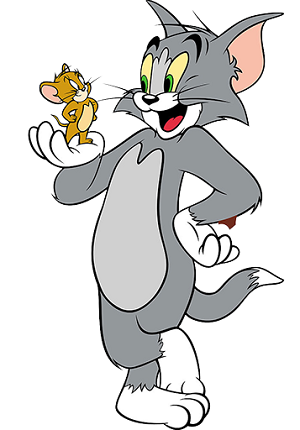
She might have a dull office job at MI5, but Eve has a knack for real spy work. When she gets involved with a new case, she follows her intuition and goes rogue, with all the disastrous consequences that that entails. That is the extent of the clichés thus far, because while Eve may sound bad ass, she’s equally feeble when her boss tells her off. She sobs and whimpers until he inevitably utters the words: ‘You are fired.’ She bites back: ‘you are a dickswab’. Right off the bat, genre and gender stereotypes are turned inside out and on their head in Killing Eve. With Eve, the show gives us a rare female heroin: one that is both emotional and bad ass. Because why would those characteristics be mutually exclusive? These reversals can also be found in smaller details: a male character who longs to be a father, a caring husband that cooks for his career-driven wife. The insult “dickswab” (a cotton swab used for medical research) replaces “douchebag” (a vaginal douche) and pinpoints the sexism behind the idea that you could not insult someone more harshly than by comparing them to a feminine hygiene product.
Killing Eve, series by BBC America, is about Eve, who quickly works her way up to become the lead of a secret investigation unit with MI6, and about the woman she has been tasked to track down: a contract killer with the codename Villanelle. A number of reviews unfold what they insistently describe as a game of cat-and-mouse. But the nature of the cat-and-mouse chase is less evident. Based on the Villanelle book series by Luke Jennings, Killing Eve entails murder, pursuit, plotting and threats – but it is not a thriller. It will make you laugh, but it is not a comedy. Killing Eve was written by Phoebe Waller-Bridge, the 33-year old actress, screenwriter and playwright known for her acclaimed show Fleabag. In her own words, Killing Eve is ‘a meditation on murder, on loneliness and the potential for a world without conscience’.
Who is the cat and who is the mouse? Killing Eve shows us the parallels and disparities between the lives of Eve and Villanelle. Eve (played by the Canadian-Korean Sandra Oh) lives an ordinary life in London when Villanelle shows up, first as a vague concept of a female assassin out there roaming the earth, and later as an all too real nemesis sitting at her kitchen table. Villanelle (the British Jodie Comer) lives in a largely unadorned apartment in Paris, with a cupboard full of disguises and a fridge full of champagne. From there, she travels across Europe to disable her targets and watch, with mild amusement, as the light dims from their eyes. Villanelle is bored. The killings are not challenging to her, they come easy. Being underestimated by her (predominantly male) victims (because who would suspect an attractive young woman to be a threat?) makes getting close to her high-profile targets effortless. When Villanelle finds out that Eve is tracking her, she does in fact seem like a cat that has caught a mouse. But her obsession for Eve is no different to the determination with which Eve pursues her.
This concept is not a new one. Countless films and shows have featured characters on either side of the law in pursuit of each other, only to discover that they have more in common than they originally thought. While the fact that Killing Eve places two women in the leading roles, when these narratives usually feature a rivalry between two men, is not in itself innovative, the way in which Waller-Bridge re-examines that template is. In the cat-and-mouse classic Heat (1995), director Michael Mann has police man Al Pacino and criminal Robert DeNiro circle each other like moths to a flame, but the erotic tension between the two macho characters remains suggestive (just look at the title). Waller-Bridge takes it a step further: when a complex love-hate relationship develops between Eve and Villanelle, she makes the attraction between them explicitly erotic. They chase and challenge each other. When Villanelle sends Eve a suitcase full of expensive clothes, it is both an act of seduction and a threat. On a fundamental level, their relationship is a toxic female friendship that jumps back and forth between envy and awe, infatuation and destruction.
Phoebe Waller-Bridge began her career in theater. Together with director Vicky Jones, who collaborated on the script of Killing Eve, she founded the theater group DryWrite in 2007. She organized obscure theater nights in the space above a pub in east London. Despite the maximum capacity of 40 guests, they crammed the room with a hundred people and put on performances that provoked audiences to participate and heckle loudly. In 2012, Waller-Bridge was dared to perform at a stand-up comedy show. Her ten-minute act was later developed into a theater monologue and, in 2016, became the tv show Fleabag. For Waller-Bridge, who did odd acting jobs for film and television next to her career in theater, the show was her big break. The six-part show Fleabag, more a mini-series than a mainstream comedy, was a success.
Fleabag tells the story of a young woman from London, played by Waller-Bridge herself. She sleeps around with men; she argues with her sister. She owns a run-down pub and maintains a trying relationship with her father and stepmother. Her mother is dead, her best friend is too. From a distance, Fleabag is exactly the sort of “edgy” comedy show that tv networks have been hungry for since Lena Dunham’s Girls: funny, raunchy, raw and made by, for and about young women. If you look more closely, you’ll see that Waller-Bridge goes beyond a show like Insecure or Amy Schumer’s sketches. Her main character is filled with self-loathing and doesn’t make it difficult for viewers to hate her, too. The show shifts, episode by episode, from comedy to tragedy. The protagonist, who notably never gets another name than the one the show’s title suggests, is not just pleasantly promiscuous; she’s a sex addict. She is witty and foul-mouthed but doesn’t vocalize what is truly bothering her. She silences herself; not unlike the golden Venus statue that shows up in the first episode and gains more significance as the show develops. That is how “fleabag” sees herself: naked and headless, only suitable for sex.
Waller-Bridge grew up in a creative family, she shares in an interview with The Gentlewoman. As a matter of course, she chose for drama school, where she and her intuitive creativity were met with a brutal reality check. She was frustrated by the passive roles she kept landing as a woman: ‘I was always crying or dying or pointing at things.’ She talks about meeting theater director Ché Walker after she graduated, who recognized ‘a sleeping tiger’ in her. Walker told her, ‘You’ve got rage. Don’t shy away from rage; rage is a gift.’
In Fleabag, the protagonist and her sister participate in a silent retreat for women. While they silently meditate, garden and do household chores, there’s an anger management course taking place next door, for men who are frustrated about the advancement of women in the workplace. The scene is as funny as it is distressing; while women are silently mopping floors. men fervently yell ‘sluts!’ at blow up dolls. Men shout out their anger, women quietly internalize it.
It is no coincidence that Waller-Bridge introduces us to Killing Eve’s main character with a scene where she wakes up screaming. Eve may not be as problematic as Fleabag, but something wild and uncontrollable simmers within her too. Something violent and destructive. But Eve has learned how to suppress that side of herself. ‘Baby, what is it?’ her alarmed husband cries out as she’s lying next to him screaming. All of a sudden, she’s calm. She explains dryly: ‘I fell asleep on both my arms’. Eve continuously switches back and forth between big, overpowering emotions and exceptional control and cold-bloodedness. This represents a grotesque exaggeration of what is expected of women: that they keep their emotions under control. The fact that we only see a fraction of Eve’s destructive anger makes us even more curious for what’s to come. What else is hidden behind Eve’s calm exterior?
The New Yorker writes that Killing Eve’s power lies in the way Waller-Bridge reconciles the outlandish and the intimate. The scene that best captures that juxtaposition is the showdown at Eve’s house, that ends with her microwaving a Tupperware of shepherd’s pie. Waller-Bridge continuously intercuts the tropes of glamor and violence associated with spy movies alongside the mundaneness of Eve’s everyday life, or, in one episode, the hilariously quaint nature of an English village. Perhaps Waller-Bridge isn’t necessarily trying to reconcile the outlandish with the intimate, but instead the feminine and the masculine? The kitchen table, as the domain of the woman, with the machismo of the spy genre?
“Dickswab” substitutes “douchebag”. Men behave like women, and vice versa. And yet the reversals in Killing Eve are never gratuitous. Waller-Bridge genuinely attempts to investigate terms such as “masculine” and “feminine”. To imagine a world in which women participate with men. Eve’s boss Carolyn Martens, played by Fiona Shaw, is an amazing character. She is the woman that all of her female peers look up to. She is impressive and attractive but she’s not conventionally beautiful. Her hairstyle and clothing are neat and look nice, but she’s not conventionally sexy. She is effortlessly cool and has, as the women around her whisper, ‘saved the world’ more than once, as if Waller-Bridge reinvented James Bond as a middle-aged woman; as a mother and a wife. Carolyn is the type of female role model that you never encounter, one next to which Beyoncé pales as too on the nose. She is the result of someone who not only wants to look beyond clichés, but who is also genuinely curious as to what you would find if you ventured past them.
---
Translation by Roxy Merrell
Originally published in De Groene Amsterdammer

|

|
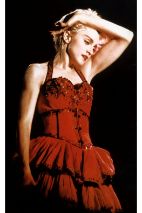
|

|

|
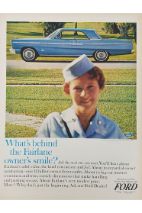
|

|

|

|
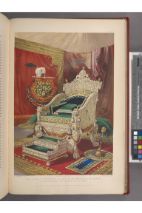
|

|

|
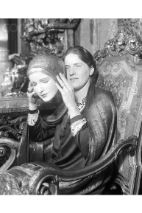
|

|

|

|
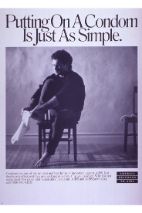
|

|
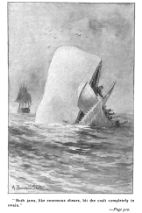
|

|

|

|
